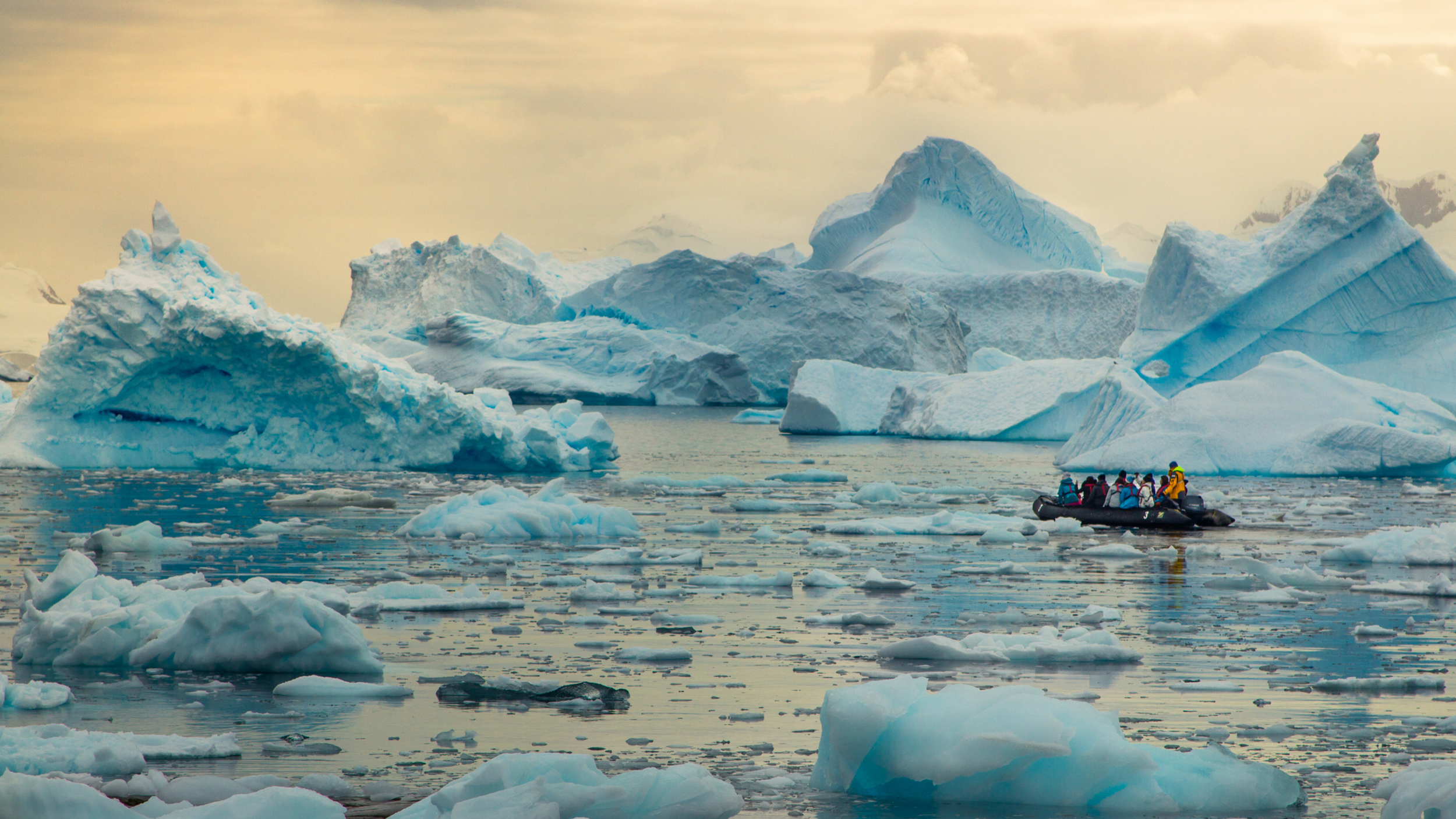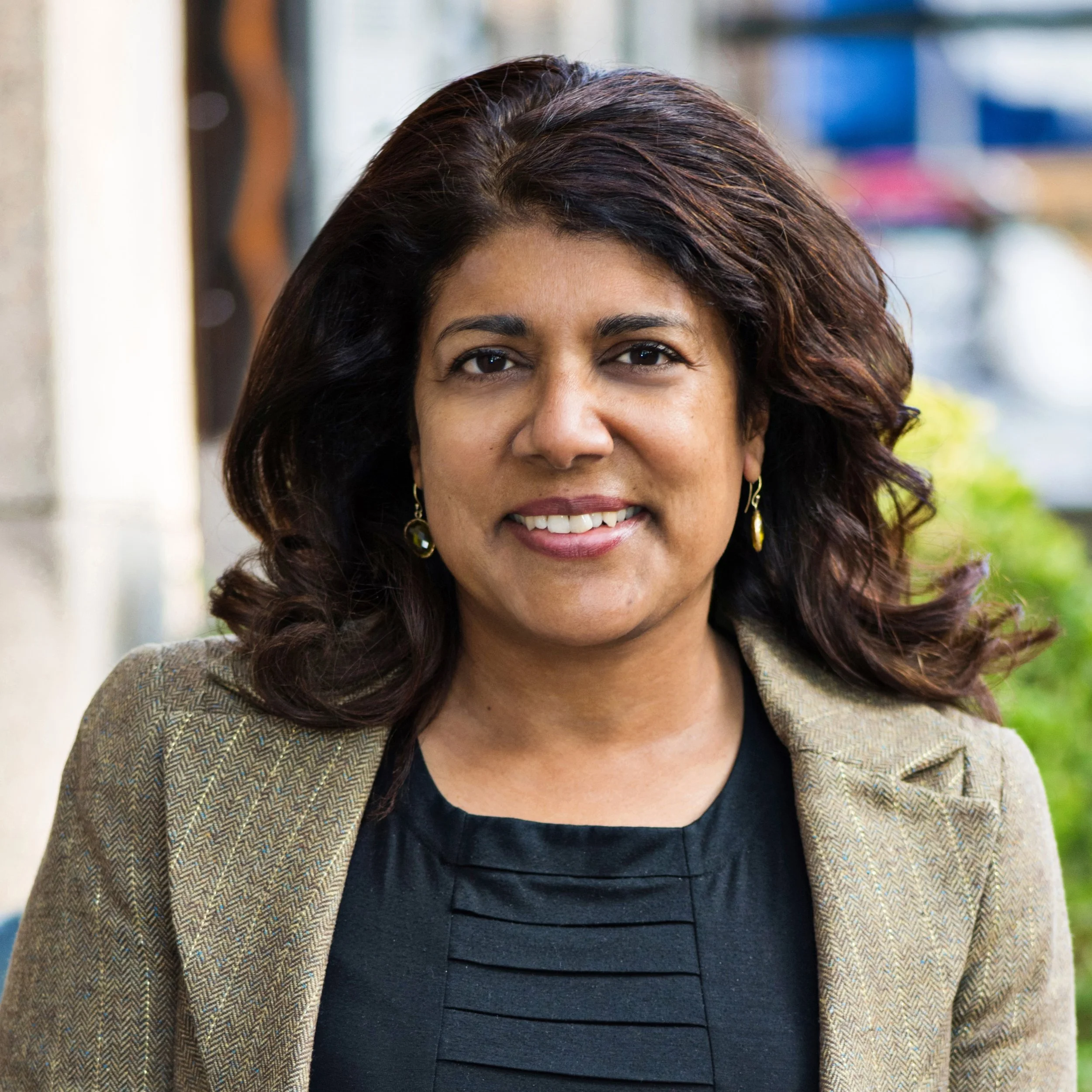

Frontiers Forum Deep Dive series
Safeguarding the polar regions from dangerous geoengineering: a critical assessment of proposed and future prospects
24 September 2025
This session explores the technical feasibility, long-term costs, environmental risks, and governance limitations of five approaches. Examine the scientific and policy challenges of deploying polar geoengineering tools as a climate mitigation strategy.

Speakers
-

Prof Martin Siegert
Exeter University, UK
-

Dr Valérie Masson-Delmotte
Institut Pierre-Simon Laplace, France
-

Prof Steven Chown
Monash University, Australia
-

Sophie Crump
Inuit Circumpolar Council (ICC), Greenland
-

Prof Aarti Gupta
Wageningen University and Research, the Netherlands

Geoengineering: solutions or distractions to the climate crisis?
Hear from the authors of a Frontiers in Science lead article—including a representative of the Intergovernmental Panel on Climate Change (IPCC)—as they analyze five polar geoengineering proposals: aerosol injection, sea walls, ice albedo modification, basal water removal, and ocean fertilization. The researchers outline their conclusions that these proposed interventions would harm the fragile polar ecosystems they intend to protect, and how the proposals fail to meet core scientific and policy criteria.
Our expert panel discuss how these initiatives may detract from achieving Net Zero, by diverting time, funding, and attention from efforts toward achieving deep decarbonization.
Agenda
Introduction
Deep Dive and methodology
Next steps and looking to the future
Panel discussion and Q&A

Speaker and contributor bios
-
Martin Siegert
Vice President and Deputy Vice Chancellor (Cornwall)
University of Exeter, UKInternationally renowned glaciologist Prof Martin Siegert leads the UK’s participation in ground-based and airborne geophysical programs, which have so far explored and charted the subglacial environment across 40% of Antarctica and led to the discovery of more than 600 subglacial lakes.
Previously co-director of the Grantham Institute at Imperial College London, Martin was the driving force behind climate and environment-related research, translating it into real world-impact and communicating it widely to help shape decision-making.
In his current role at the University of Exeter, Martin is responsible for supporting the 2030 target for net-zero greenhouse gas emissions in both the university and the county—something he is deeply passionate about.
In 2013 Martin was awarded the prestigious Martha T Muse Prize in Antarctic Science and Policy for his significant contributions to the field.
-
Valérie Masson-Delmotte
Senior Scientist
Institut Pierre-Simon Laplace, and Laboratoire des Sciences du Climat et de l'Environnement - Université Paris Saclay, FranceDr Valerie Masson-Delmotte is one of the world’s leading experts on past and present climate change. Her research at the Laboratory of Climate and Environmental Sciences of Paris Saclay to better understand how the Earth system responds to changes in greenhouse gases has been critical for testing climate models and for highlighting the vulnerability of the Arctic and Antarctic to warming.
As co-chair of a key IPCC working group, she helped coordinate the global scientific consensus on climate change, including the landmark 2018 Special Report on Global Warming of 1.5 °C. Since 2018, she has served as a member of France's High Council on Climate, to evaluate public policies related to greenhouse gas emission reductions and climate change adaptation.
Valerie was recently elected a member of the French Academy of Sciences —recognized for her work on climate change and commitment to supporting research and science diplomacy.
-
Steven Chown
Professor of Biological Sciences and Director of ARC SRI Securing Antarctica's Environmental Future
Monash University, AustraliaProf Steven Chown is an award-winning biologist and one of the most highly cited researchers in Antarctic environmental science and policy. Formerly Head of the School of Biological Sciences at Monash University and founding Director of the DST-NRF Centre of Excellence for Invasion Biology at Stellenbosch University, his research addresses large-scale environmental change and the strategies needed for mitigation and adaptation at regional and local levels.
With more than 30 years of field experience in Antarctica, Steven has worked across Australia, the Indo-Pacific, the UK, and South Africa, and is widely recognized for his leadership at the science–policy interface.
He is a Fellow of the Australian Academy of Science, an elected Member of the American Academy of Arts and Sciences and has received the South African Antarctic Gold Medal, the inaugural Tinker-Muse Prize for Science and Policy in Antarctica, the SCAR Medal for Excellence in Antarctic Research, and the French Republic’s Medal of the 30th Anniversary of the Madrid Protocol.
-
Sophie Crump
Environment and Climate Advisor
Inuit Circumpolar Council, GreenlandSophie Crump has more than a decade of experience in grassroots research, education, and capacity-building, including five years working with Arctic Indigenous communities to advance Indigenous-led environmental monitoring, research, and guardians programs. With academic training in the history of Western knowledge production, Sophie works to bridge Indigenous Knowledge and Western science in support of climate policy, environmental research, and ecological monitoring.
At ICC Greenland, she supports Inuit leadership in advocating for the rights of Indigenous Peoples and the recognition of Indigenous Knowledge in international forums such as the UNFCCC, the Convention on Biological Diversity, and the Arctic Council. She also serves as ICC’s Head of Delegation to the Arctic Council’s Conservation of Arctic Flora and Fauna Working Group.
Sophie is a settler Canadian, who grew up on the unceded territory of the Algonquin Anishinaabe People in Ottawa, Ontario and is grateful to now live in Inuit homelands in Nuuk, Kalaallit Nunaat/Greenland.
-
Aarti Gupta
Professor of Global Environmental Governance, Environmental Policy Group, Department of Social Sciences
Wageningen University, NetherlandsA key voice within global climate policy, Prof Aarti Gupta has a background in international relations, political science, and science and technology studies. Her research examines transparency, accountability, and equity in global climate and environmental governance, as well as the anticipatory governance of novel technologies such as modern biotechnology and solar geoengineering.
Currently principal investigator of the TRANSGOV project on transparency in climate governance, Aarti previously co-led the REIMAGINE project on anticipatory governance in vulnerable regions of the Global South.
Aarti has held leadership roles in the Earth System Governance network—one of the largest interdisciplinary networks of sustainability scholars worldwide—has been a contributing author to the Intergovernmental Science-Policy Platform on Biodiversity and Ecosystem Services (IPBES), and worked for international organizations and civil society groups, including the United Nations Development Programme in New York, Oxfam Novib in The Hague and Transparency International in Berlin.
She has received numerous awards for her teaching and mentoring of students, and societal engagement.
